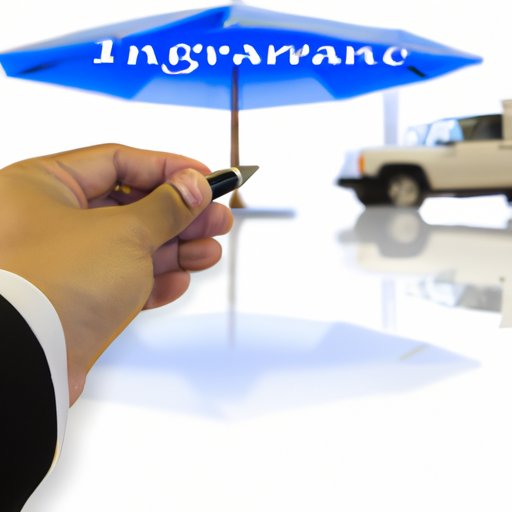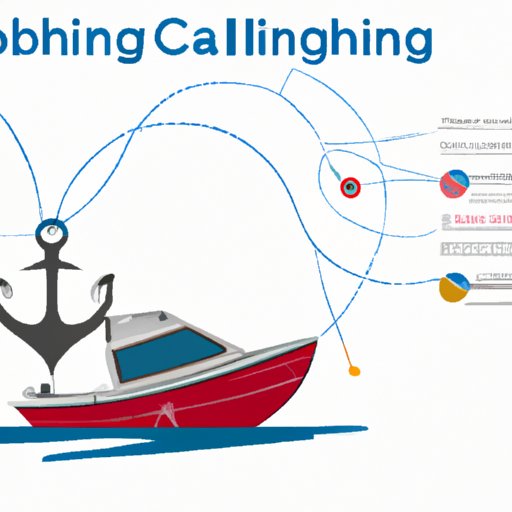Introduction
A fishing charter business is a service that provides individuals and groups with the opportunity to go fishing on a boat for a fee. The goal of this type of business is to provide customers with a safe and enjoyable fishing experience. This article will provide an in-depth guide to starting a successful fishing charter business. We will cover topics such as research regulations and licensing requirements, creating a business plan, securing a vessel and necessary fishing equipment, obtaining insurance coverage, setting up an online presence, and marketing your services.

Research Regulations and Licensing Requirements for Your Area
Before you can start your business, you need to understand the regulations and licensing requirements for your area. Each state has its own set of regulations and requirements that must be followed. For example, according to the Florida Fish and Wildlife Conservation Commission, “all persons operating a charter vessel or engaging in commercial fishing activities must possess a valid saltwater products license.”1 Additionally, you may need other permits and licenses depending on the type of business you are running. It is important to research the specific regulations and licensing requirements for your area and make sure you have all the necessary permits and licenses before you begin operations.
Create a Business Plan and Determine Your Target Market
Once you have researched the regulations and licensing requirements for your area, it is time to create a business plan. This plan should include information about your target market, pricing structure, services offered, and marketing strategy. When determining your target market, consider who would be most interested in your services. Are you targeting families, corporate groups, or anglers looking for a trophy catch? Knowing your target market will help you develop a pricing structure and marketing strategy that will appeal to them.
Secure a Vessel and Necessary Fishing Equipment
The next step is to secure a vessel and necessary fishing equipment for your business. Research different types of vessels that are suitable for fishing charters, such as center console boats, pontoon boats, and express cruisers. Consider the size of the vessel and the number of passengers it can safely accommodate. Additionally, you need to determine what type of fishing equipment is necessary for your business. This could include rods, reels, bait, tackle, and other necessary supplies. You also need to consider the cost of purchasing or leasing a vessel and fishing equipment.

Obtain Insurance Coverage for Your Business
It is important to obtain insurance coverage for your business to protect yourself and your customers. Understand the different types of insurance coverage available, such as marine liability insurance and workers compensation insurance. Consider the cost of obtaining insurance coverage and research different insurance providers to find the best policy for your business. Additionally, you may need to obtain additional coverage if you are operating in foreign waters or transporting passengers.
Set Up an Online Presence for Your Business
In order to reach a wider audience and increase visibility, you need to set up an online presence for your business. Design a website for your business and use social media platforms such as Facebook, Twitter, and Instagram to promote your services. Utilize search engine optimization tactics to ensure that your website appears at the top of search engine results. Additionally, consider developing a blog to share fishing tips and updates about your business.

Market Your Services to Potential Customers
The final step is to market your services to potential customers. Develop relationships with local marinas, bait shops, and other fishing businesses. Utilize promotional materials such as flyers and brochures to attract customers. Participate in local fishing tournaments and events to gain exposure. Additionally, you can offer discounts or loyalty programs to encourage repeat customers.
Conclusion
Starting a fishing charter business requires careful planning and research. You need to understand the regulations and licensing requirements for your area, create a business plan, secure a vessel and necessary fishing equipment, obtain insurance coverage, set up an online presence, and market your services. With the right approach and dedication, you can create a successful and profitable fishing charter business.
For more information on how to start a fishing charter business, please visit our website at [insert link].
(Note: Is this article not meeting your expectations? Do you have knowledge or insights to share? Unlock new opportunities and expand your reach by joining our authors team. Click Registration to join us and share your expertise with our readers.)
